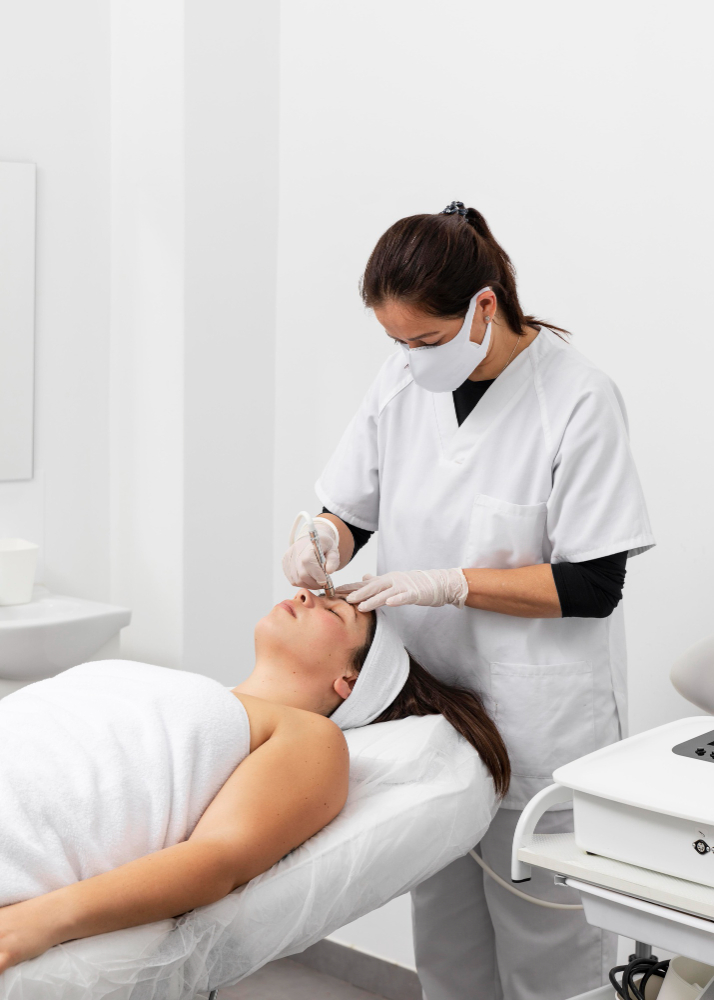Skin, Beauty, and Genes

Skin changes are among the most visible signs of aging. Skin properties such as hydration, elasticity, and antioxidant capacity play a key role in the skin aging process. Skin aging is a complex process influenced by heritable and environmental factors. Recent studies on twins have revealed that up to 60% of the skin aging variation between individuals can be attributed to genetic factors, while the remaining 40% is due to non-genetic factors.1
A study group from Spain identified 13 single nucleotide polymorphisms (SNPs) in genes coding for proteins that play a role in skin properties associated with aging, namely, oxidative stress, elasticity, and hydration. This clustering analysis suggests that different skin care needs depend on the naturally occurring single genetic variants present in each one of the genetic clusters. 1
Skin Pigmentation and Genes
The evolution of partly depigmented skin and variable tanning abilities has occurred multiple times in prehistory, as populations have dispersed into environments with lower and more seasonal UVR regimes, with unique complements of genes and cultural practices. The evolution of extremes of dark pigmentation and depigmentation has been rare and occurred only under conditions of extremely high or low environmental UVR, promoted by positive selection on variant pigmentation genes followed by limited gene flow.2 Genomic studies of the last two decades have revealed that the genetic “palette” of skin pigmentation gene variants is great and that many combinations of multiple variant genes have contributed to the complex pattern of skin pigmentation phenotypes and genotypes observed today. Under more highly seasonal UVR regimes, the evolution of enhanced tanning abilities and genes contributing to rapid development of facultative pigmentation has been favoured.2
Skin Disorder and Genes
Several genes are common to skin diseases of following, falling mostly into immune-related pathways, including inflammation, T-cell signaling, antigen presentation, and NFKB signaling.2
- Psoriasis
- Atopic dermatitis
- Vitiligo
Customize your Skin Care Routine as per your Genes
The use of genetic signature for the identification of skin care individual requirements opens the door to personalized treatments for specific populations. One can even envisage having the complete DNA sequence of an individual available as an aid to designing a personalized skin care and anti-aging treatment with the help of genetic counselling.1 Further, genomic analysis can contribute to the characterization of human skin care and anti-aging needs, by conducting a simple genetic test and assigning an individual to one of the ten genetic groups.1
MyDNA Derma Geneheck is a DNA based genetic test which helps to gain information regarding the predisposition to skin and hair needs. The genetic test provides insights on 40+ conditions of your skin, like skin aging, hydration, elasticity, acne, and sun photoactivity, along with a free genetic counseling session. It can also help you to predict the risks for skin tone, texture, inflammation, allergic reactions, photosensitivity, oxidative stress, skin aging, the effect of environmental pollutants, along with nutritional requirements for healthy skin. The genetic tests can give you the information for the following:
- Traits : Hair Texture, Hair colour, Skin colour, Eye colour, Anxiety & stress control, Sleep cycle, Sleep duration, Nicotine dependence
- Skin Texture & Aging Factors : Collagenase activity, Skin Elasticity, Skin Hydration, Glycation, Acne and Cellulite
- Skin & Hair Conditions : Male pattern baldness (Androgenetic Alopecia), Atopic dermatitis, Psoriasis, Vitiligo
- Skin Nutrition : Vitamin A, B6, B12, B9, C & D, Iron, Biotin levels, PUFA, Antioxidant Capacity, Dietary Fat Response
- Skin Photoactivity: Sun burns and Tanning
Why Choose MyDNA Derma Genecheck?
- Precise Understanding: Gain insights into the exact needs of your skin and hair based on your genetic code.
- Actionable Plans: Take control of your skincare journey with actionable plans to prevent damage and maintain optimal skin health.
- Personalised Care: Tailor your skincare routine, nutrition, and daily care based on the unique requirements identified in your DN.
Who Should Take MyDNA Derma Genecheck?
- Anyone willing to prevent skin from damage right from the beginning.
- Individuals leading stressful and unhealthy lifestyles that may impact their skin and hair.
- Anyone whose current skincare routine is ineffective.
- Those desiring a delay in signs of skin ageing.
- Individuals facing personal or familial skin-related issues.
How Do We Analyse?
Polygenic Risk Score
Based on Polygenic Risk Score (PRS), this report is generated. A polygenic risk score (PRS) estimates an individual’s genetic risk (predisposition) for a trait or condition. PRS takes the sum (aggregate) of SNPs to calculate an overall genetic risk for a particular condition.
How it works?

Order a Kit

Gather saliva samples.Make sure the cap is securely fastened

Document the sample And Reach us @ 040-49583100 to collect your samples

Lab Processing & Data Analysis

Report Generation

Login in your account or check your email

Schedule your Genetic Counselling
References :
- Naval J, Alonso V, Herranz MA. Genetic polymorphisms and skin aging: the identification of population genotypic groups holds potential for personalized treatments. Clin Cosmet Investig Dermatol. 2014 Jul 1;7:207-14. doi: 10.2147/CCID.S55669. PMID: 25061327; PMCID: PMC4085290.
- Jablonski NG. The evolution of human skin pigmentation involved the interactions of genetic, environmental, and cultural variables. Pigment Cell Melanoma Res. 2021 Jul;34(4):707-729. doi: 10.1111/pcmr.12976. Epub 2021 May 4. PMID: 33825328; PMCID: PMC8359960.
- Cold Spring Harb Perspect Med doi: 10.1101/cshperspect.a015172